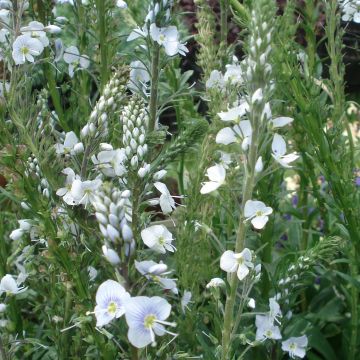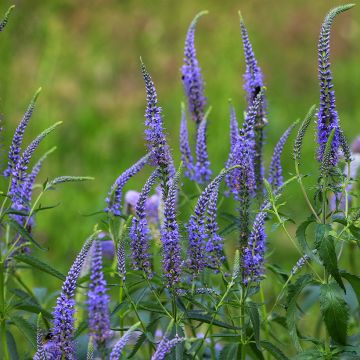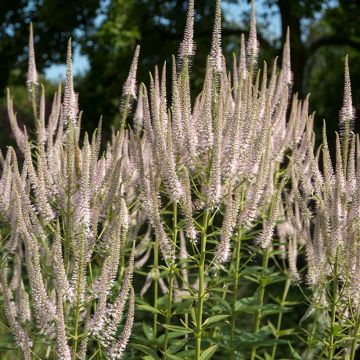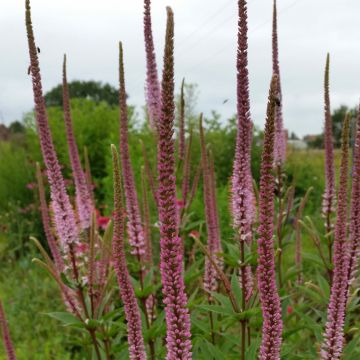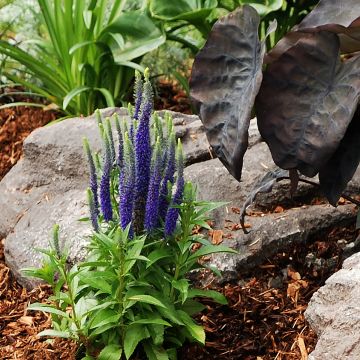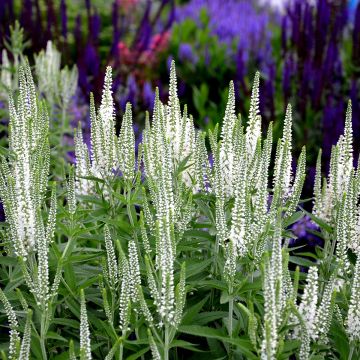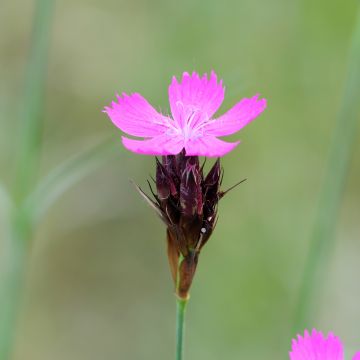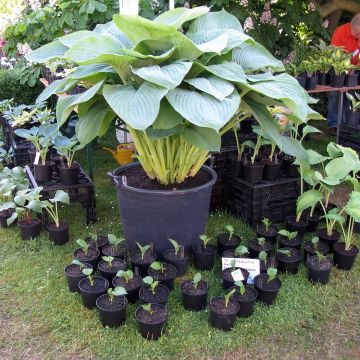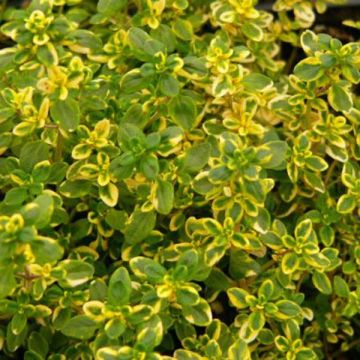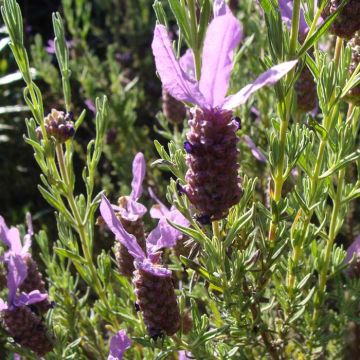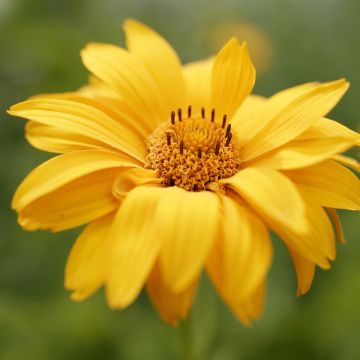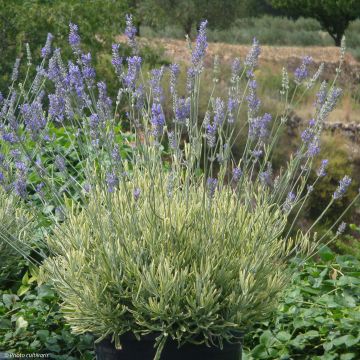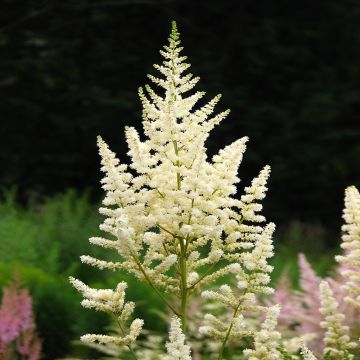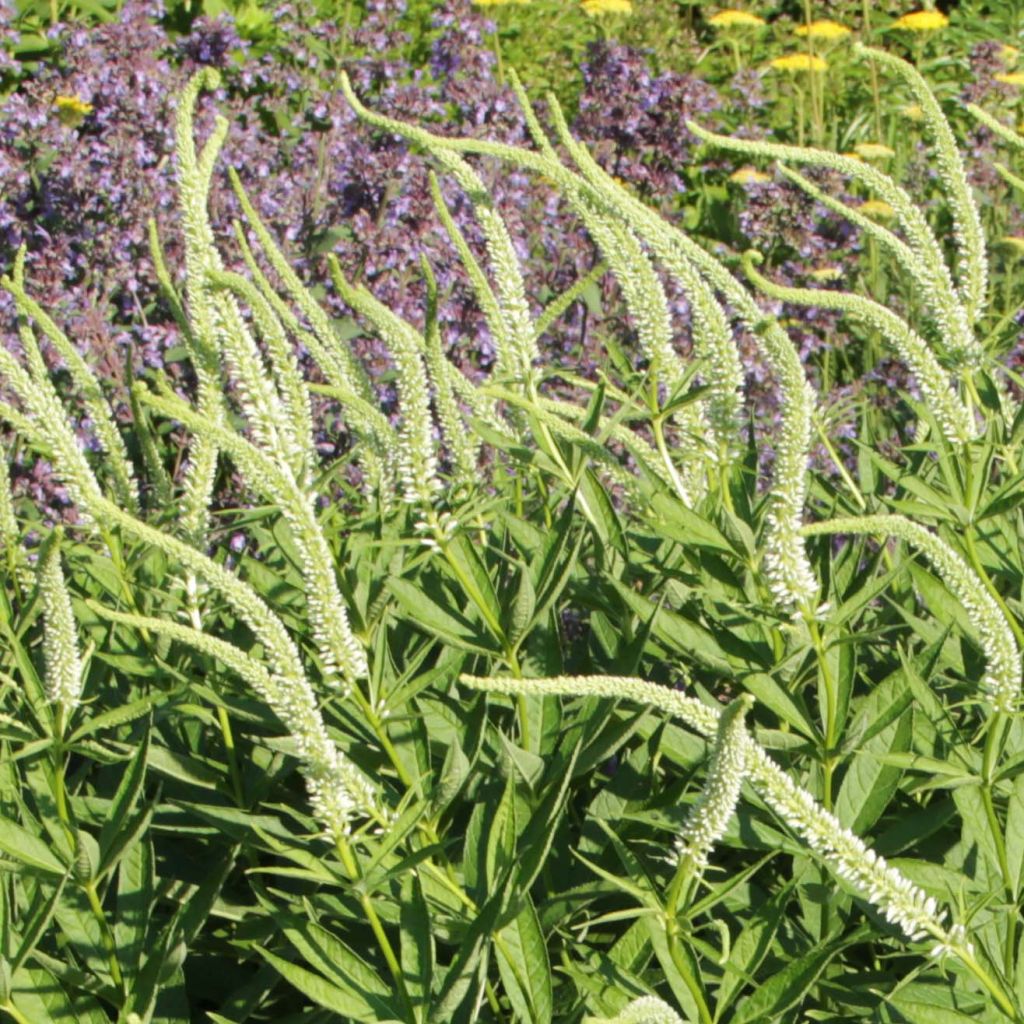

Veronicastrum virginicum Spring Dew
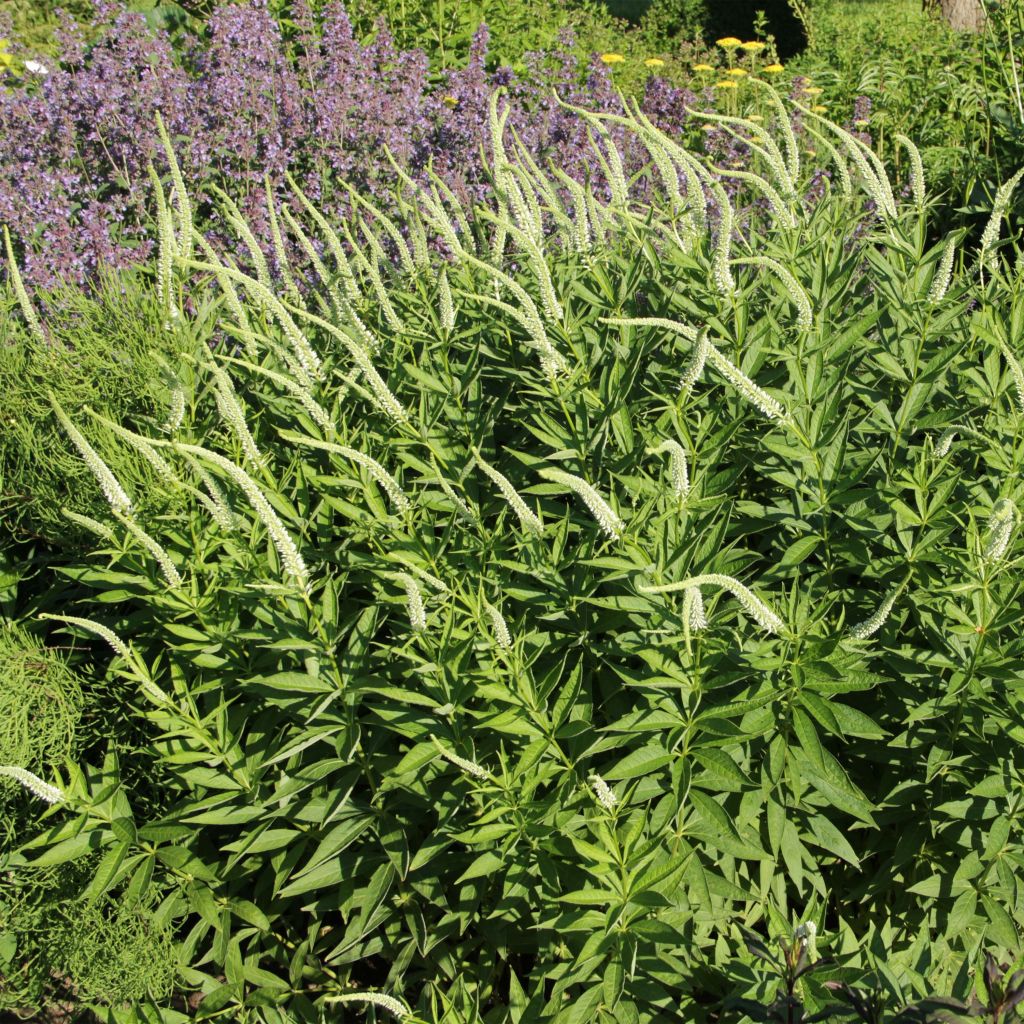

Veronicastrum virginicum Spring Dew
Veronicastrum virginicum Spring Dew
Veronicastrum virginicum Spring Dew
Culver's root, Virginia Speedwell, Bowman's Root
Disappointed this time: the veronicastrumbs arrived all dried up... will they recover? And then the earth was leaking out of the cardboard...
Hubert B., 21/02/2020
Special offer!
Receive a €20 voucher for any order over €90 (excluding delivery costs, credit notes, and plastic-free options)!
1- Add your favorite plants to your cart.
2- Once you have reached €90, confirm your order (you can even choose the delivery date!).
3- As soon as your order is shipped, you will receive an email containing your voucher code, valid for 3 months (90 days).
Your voucher is unique and can only be used once, for any order with a minimum value of €20, excluding delivery costs.
Can be combined with other current offers, non-divisible and non-refundable.
Home or relay delivery (depending on size and destination)
Schedule delivery date,
and select date in basket
This plant carries a 12 months recovery warranty
More information
We guarantee the quality of our plants for a full growing cycle, and will replace at our expense any plant that fails to recover under normal climatic and planting conditions.
Would this plant suit my garden?
Set up your Plantfit profile →
Description
Veronicastrum virginicum Spring Dew, or Virginia Speedwell, is a tall, elegant and slender perennial. Its narrow silhouette brings height to flower beds and it easily fits in between summer plants to add a touch of lightness with its long and thin flowering spikes swaying in the wind. From June onwards, these spikes are covered with lots of small, pale lavender-blue almost white flowers which attract numerous insects. This hardy plant prefers moist to waterlogged soils and semi-shaded positions.
Originally from the plains of the United States, as its name suggests, Veronicastrum can be found in the wild in flood meadows, ditch banks, forest edges... It belongs to the Scrophulariaceae family, just like Veronica, with which it is often confused. The Spring Dew Virginia Speedwell doesn't mind cold or shade and thrives in seemingly inhospitable places where it is generous and attractive. This herbaceous perennial is easily recognied by its unbranched stems (up to 1.30 m (4ft)). The dark green deciduous leaves are long and lanceolate in whorls around the stem. The floral spike at the top of the stem is long (20 cm (8in)) and composed of multiple small flowers. Smaller spikes appear around this central spike, giving it a candelabra-like appearance. It starts to flower from the bottom and reveals different shades from pale lavender-blue to white. It can start as early as June, depending on the climate, and last until August, attracting numerous pollinators.
Plant Veronicastrum virginicum in partial shade, wherever the soil remains moist, as it dislikes drought and scorching sun. These plants do not like to be disturbed but do not take up much space on the ground. They bring rhythm and height to flower beds and water features. They will be enhanced against a dark background, like the purple foliage of Loropetalum chinense 'Fire Dance' or Japanese Maple 'Red Pygmy', or perennials like Ligularia dentata 'Desdemona' and the fern Purple Royal Fern 'Purpurascens'. In a flower bed where the soil remains moist, the Spring Dew Virginia Speedwell will thrive alongside various Phlox. It requires no maintenance, except for occasional watering in hot weather.
Report an error about the product description
Veronicastrum virginicum Spring Dew in pictures
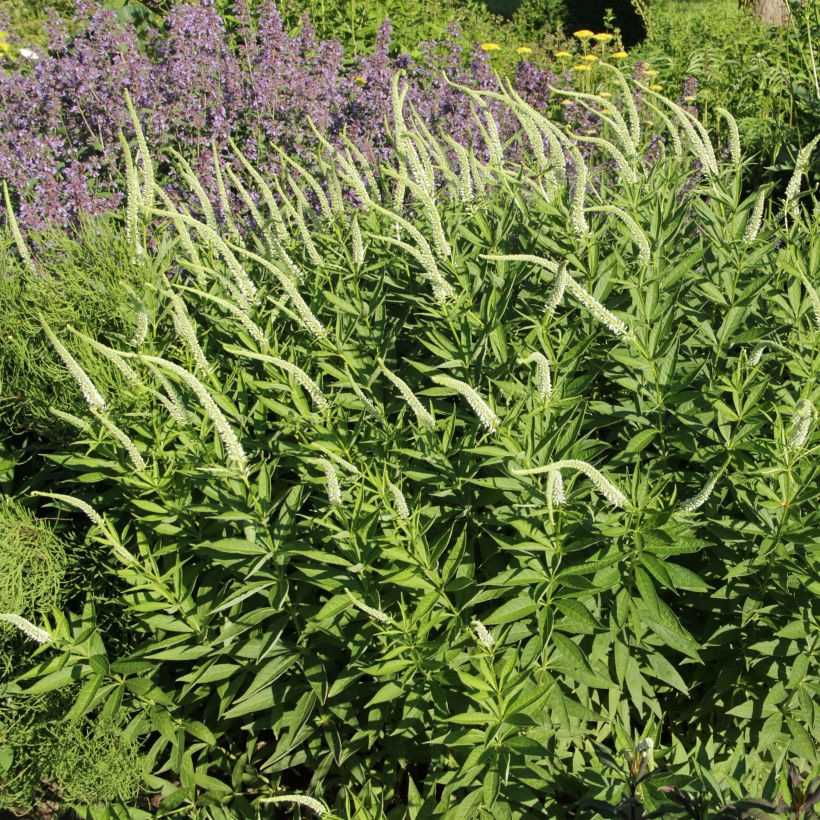

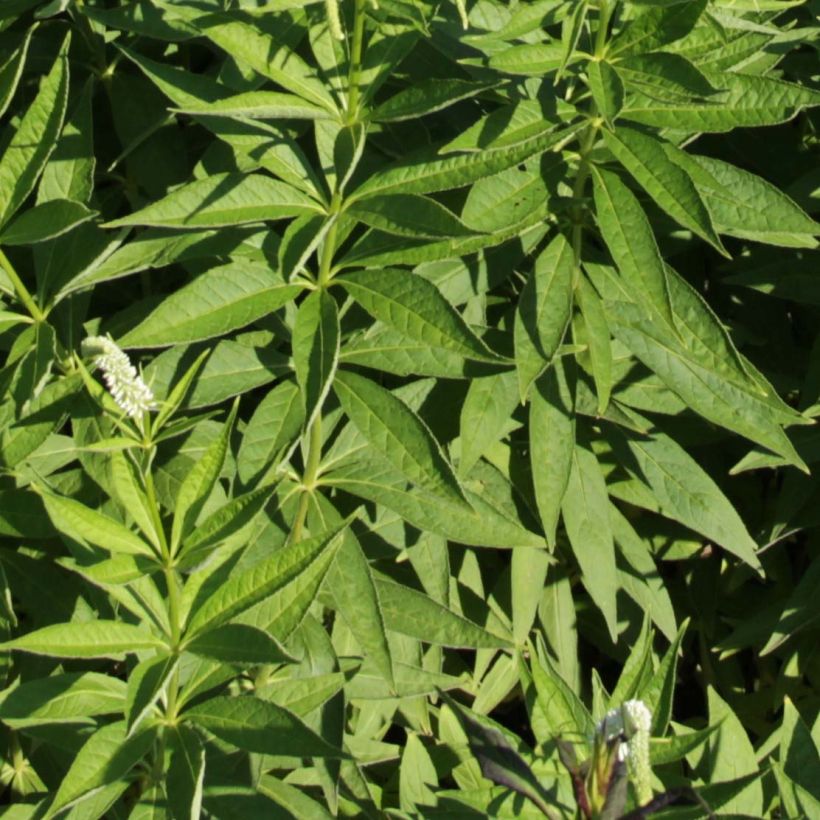

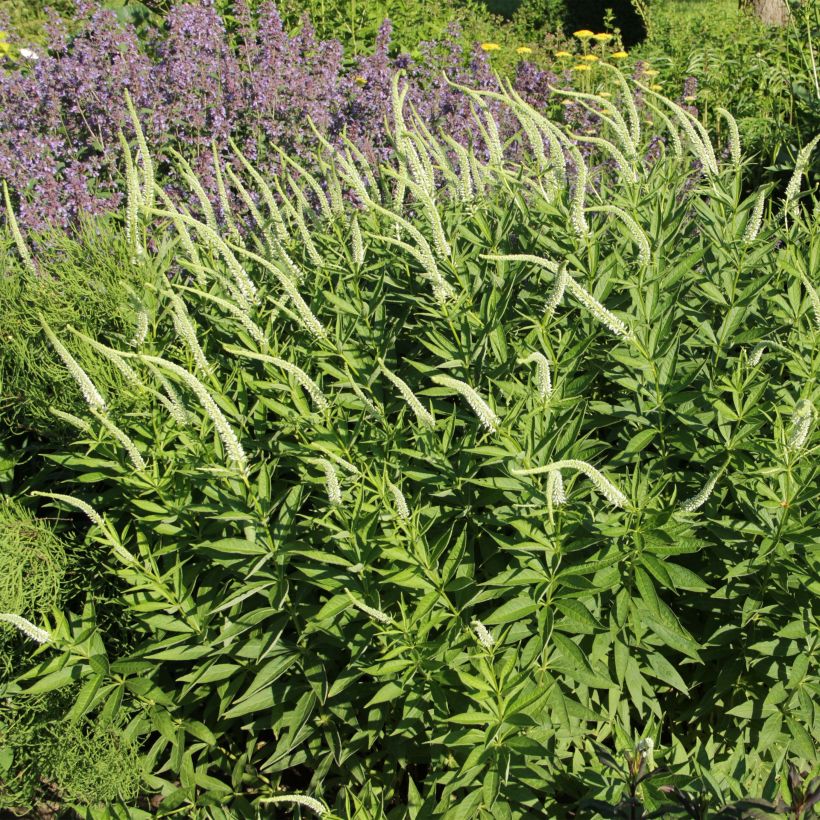

Flowering
Foliage
Plant habit
Botanical data
Veronicastrum
virginicum
Spring Dew
Scrophulariaceae
Culver's root, Virginia Speedwell, Bowman's Root
Cultivar or hybrid
Other Veronica - Speedwell
View all →Planting and care
Veronicastrum virginicum 'Spring Dew', or Virginia Speedwell, is best planted in spring or autumn in deep, rich, and neutral soil. It should be moist or wet. It prefers partial shade and will only tolerate full sun if the soil remains damp.
It dislikes drought and scorching sun and doesn't like to be transplanted.
Planting period
Intended location
Care
-
, onOrder confirmed
Reply from on Promesse de fleurs
Similar products
Haven't found what you were looking for?
Hardiness is the lowest winter temperature a plant can endure without suffering serious damage or even dying. However, hardiness is affected by location (a sheltered area, such as a patio), protection (winter cover) and soil type (hardiness is improved by well-drained soil).

Photo Sharing Terms & Conditions
In order to encourage gardeners to interact and share their experiences, Promesse de fleurs offers various media enabling content to be uploaded onto its Site - in particular via the ‘Photo sharing’ module.
The User agrees to refrain from:
- Posting any content that is illegal, prejudicial, insulting, racist, inciteful to hatred, revisionist, contrary to public decency, that infringes on privacy or on the privacy rights of third parties, in particular the publicity rights of persons and goods, intellectual property rights, or the right to privacy.
- Submitting content on behalf of a third party;
- Impersonate the identity of a third party and/or publish any personal information about a third party;
In general, the User undertakes to refrain from any unethical behaviour.
All Content (in particular text, comments, files, images, photos, videos, creative works, etc.), which may be subject to property or intellectual property rights, image or other private rights, shall remain the property of the User, subject to the limited rights granted by the terms of the licence granted by Promesse de fleurs as stated below. Users are at liberty to publish or not to publish such Content on the Site, notably via the ‘Photo Sharing’ facility, and accept that this Content shall be made public and freely accessible, notably on the Internet.
Users further acknowledge, undertake to have ,and guarantee that they hold all necessary rights and permissions to publish such material on the Site, in particular with regard to the legislation in force pertaining to any privacy, property, intellectual property, image, or contractual rights, or rights of any other nature. By publishing such Content on the Site, Users acknowledge accepting full liability as publishers of the Content within the meaning of the law, and grant Promesse de fleurs, free of charge, an inclusive, worldwide licence for the said Content for the entire duration of its publication, including all reproduction, representation, up/downloading, displaying, performing, transmission, and storage rights.
Users also grant permission for their name to be linked to the Content and accept that this link may not always be made available.
By engaging in posting material, Users consent to their Content becoming automatically accessible on the Internet, in particular on other sites and/or blogs and/or web pages of the Promesse de fleurs site, including in particular social pages and the Promesse de fleurs catalogue.
Users may secure the removal of entrusted content free of charge by issuing a simple request via our contact form.
The flowering period indicated on our website applies to countries and regions located in USDA zone 8 (France, the United Kingdom, Ireland, the Netherlands, etc.)
It will vary according to where you live:
- In zones 9 to 10 (Italy, Spain, Greece, etc.), flowering will occur about 2 to 4 weeks earlier.
- In zones 6 to 7 (Germany, Poland, Slovenia, and lower mountainous regions), flowering will be delayed by 2 to 3 weeks.
- In zone 5 (Central Europe, Scandinavia), blooming will be delayed by 3 to 5 weeks.
In temperate climates, pruning of spring-flowering shrubs (forsythia, spireas, etc.) should be done just after flowering.
Pruning of summer-flowering shrubs (Indian Lilac, Perovskia, etc.) can be done in winter or spring.
In cold regions as well as with frost-sensitive plants, avoid pruning too early when severe frosts may still occur.
The planting period indicated on our website applies to countries and regions located in USDA zone 8 (France, United Kingdom, Ireland, Netherlands).
It will vary according to where you live:
- In Mediterranean zones (Marseille, Madrid, Milan, etc.), autumn and winter are the best planting periods.
- In continental zones (Strasbourg, Munich, Vienna, etc.), delay planting by 2 to 3 weeks in spring and bring it forward by 2 to 4 weeks in autumn.
- In mountainous regions (the Alps, Pyrenees, Carpathians, etc.), it is best to plant in late spring (May-June) or late summer (August-September).
The harvesting period indicated on our website applies to countries and regions in USDA zone 8 (France, England, Ireland, the Netherlands).
In colder areas (Scandinavia, Poland, Austria...) fruit and vegetable harvests are likely to be delayed by 3-4 weeks.
In warmer areas (Italy, Spain, Greece, etc.), harvesting will probably take place earlier, depending on weather conditions.
The sowing periods indicated on our website apply to countries and regions within USDA Zone 8 (France, UK, Ireland, Netherlands).
In colder areas (Scandinavia, Poland, Austria...), delay any outdoor sowing by 3-4 weeks, or sow under glass.
In warmer climes (Italy, Spain, Greece, etc.), bring outdoor sowing forward by a few weeks.































